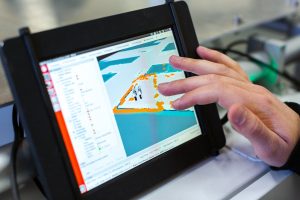As the world continues to change, so does the manner in which we work. Whether they’re caused by evolving technological landscapes or the pandemic-induced disruptions, these new changes have the potential to change the future of work for good. With that in mind, here are some of the most important trends that have already impacted the way work is done in 2022, and will likely transform work in the future as well:
Equity and fairness are steadily rising
Apart from the disruption and inequalities directly related to the COVID-19 pandemic, other important social issues regarding race, accessibility, fairness, and even climate change have become more prominent during the pandemic. And with more women deciding on non-traditional careers and a higher number of workplaces becoming more diverse and inclusive, companies now need to focus on equity and fairness as well.
Certain issues that arose in the world of business include unequal access to flexible work, lower compensations for more affordable locations, compensation premiums only for new hires, etc. In many instances, these problems are thought to present unequal opportunities for employees, which is why the way companies manage equity and fairness will become the main priority for HR professionals in 2022 and beyond.

Skills are more important than roles
In the post-COVID world, employers will likely be shifting from roles demanding different and unrelated skills to specialized crucial skills that fulfill the specific requirements and needs of a business. This is mainly due to the fact that companies are now realizing that roles relate more to places in organizational structural hierarchies, while skills cater to a company’s unique challenges and needs specifically.
But as businesses are moving to flatter and more agile structures that bring resilience after the pandemic, they will have to look for specialized skills that tackle their unique issues as well. Therefore, employers will create new positions in the future formed on specific crucial skills instead of prioritizing outdated hierarchical roles. The best way to learn more skills is during college or free time. Start thinking: What are opportunities for finding part time summer jobs near me? Start learning your skills and success is guaranteed.
Employee well-being is the focus
Even though this problem was increasing drastically over the last few years, employee stress and exhaustion have reached new heights during the coronavirus pandemic. And as we learn more about employee burnout and its negative effects on both the workers and the company as a whole, new solutions have to be implemented to support the health and well-being of employees.
As a result, the physical and mental health of employees is becoming a top priority for an increasing number of HR executives. New solutions such as supporting healthy lifestyles, offering remote and hybrid work opportunities, and building stronger relationships with workers are now being implemented, having quite a positive effect on the productivity and efficiency of employees, as well as the business’s bottom line.

Work is becoming more flexible
Many industries around the world are experiencing labor shortages, forcing companies to put more effort into attracting and retaining the best talent in their sectors. And while some businesses are able to compete through higher compensation alone, the current inflation and declining wages mean that most organizations simply don’t have the financial resources to do the same.
Instead, companies are attempting to win talent over with more attractive benefits. Along with remote working opportunities, this also means offering shorter workweeks, flexible working hours, and more time off, all while keeping the compensation flat. This has proved to be quite an effective compromise, and might even change the nature of work as we know it.
Digital transformations are crucial
The COVID-19 pandemic has noticeably rushed digital transformations as well. Businesses are now investing in technological solutions such as the internet of things (IoT) and artificial intelligence (AI) at a rapid speed, and digital skills are required from all new and existing employees, even when it comes to business-related roles.
As digital solutions become more common, augmentation and automation of the workforce will likely be more prominent as well. Employees will need to work together with automation and AI technologies, providing human input during the automation process where needed. Clearly, digital transformation isn’t replacing human workers with technology, but rather enhancing the way they work.
There’s no denying that the coronavirus pandemic was the biggest workplace disruption we’ve experienced in recent history, and there’s no going back. Work has been transformed for good, and the future will only bring new changes focused on flexibility and adaptiveness.



